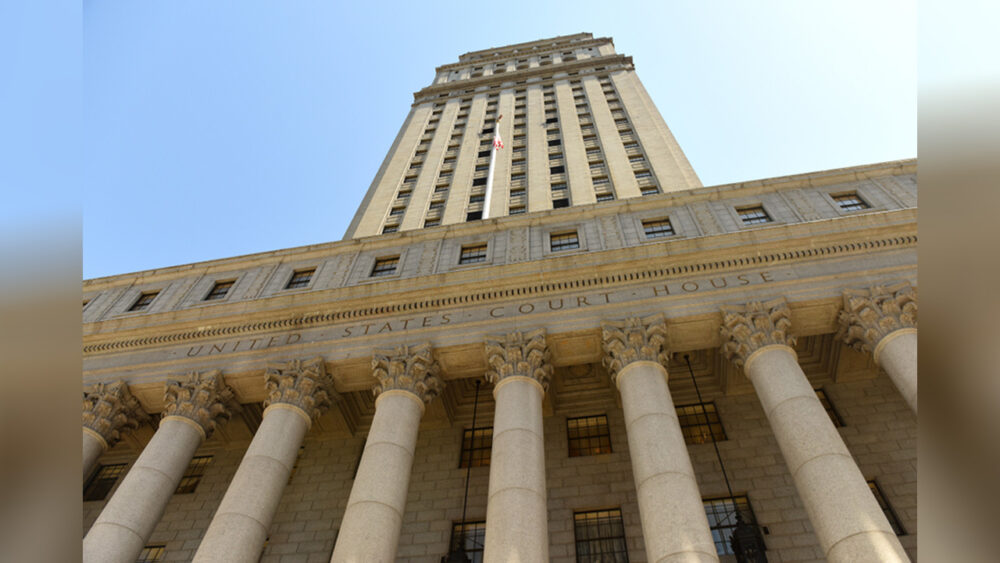Attorneys for Luigi Mangione, accused of assassinating UnitedHealthcare CEO Brian Thompson, say federal prosecutors are withholding key evidence in their push for the death penalty and wrongly tying him to a separate mass shooting.
In a filing Friday in the Southern District of New York, Mangione’s attorneys said the government’s “Notice of Intent” is vague and insufficient for preparing a defense in the federal murder case tied to the December 2024 shooting of UnitedHealthcare CEO Brian Thompson.
“The Government’s Notice of Intent cites two statutory aggravating factors, Grave Risk of Death to Additional Persons and Substantial Planning and Premeditation, but does not include any information concerning the individual or individuals who allegedly were put in grave risk of death by Mr. Mangione’s alleged actions, nor does it contain any information regarding the actions that the Government alleges constitute ‘substantial planning,’” the filing reads.
The Breakdown
- Defense slams vagueness: Luigi Mangione’s lawyers say federal prosecutors aren’t clear on the evidence they plan to use in the high-profile murder case.
- No link to NYC mass shooting: The defense denies any connection between Mangione and Shane Devon Tamura, who killed four people in Midtown Manhattan in July.
- Aggravating factors under fire: The government cited “Grave Risk of Death” and “Substantial Planning,” but attorneys say the notice lacks key details needed to mount a defense.
- Death penalty on the table: Mangione faces potential capital punishment, making precise notice of aggravating factors critical for his legal team.
Mangione, 27, faces federal charges including first-degree murder in furtherance of terrorism and is being held without bail in Brooklyn. US Attorney General Pam Bondi instructed prosecutors to seek the death penalty against the man she described as a “cold-blooded” assassin in an April 1 press release.
The prosecution has argued to the court that Mangione has inspired mass shootings.
“Since the murder, certain quarters of the public—who openly identify as acolytes of the defendant—have increasingly begun to view violence as an acceptable, or even necessary substitute for reasoned political disagreement. The defendant poses a continuing danger not only in a personal capacity, but also because he has sought to influence others,” prosecutors said in earlier filings.
Mangione’s attorneys challenged the government’s attempts to link Mangione to the July 28 mass shooting in Midtown Manhattan, in which Shane Devon Tamura killed four people.
“The Government is well-aware that there is absolutely no link between Mr. Mangione and Mr. Tamura and there is no evidence that Mr. Tamura was influenced in any way by the murder of Mr. Thompson or by Mr. Mangione’s writings criticizing the abusive practices of the health insurance industry,” the filing said.
ABC News reported that Tamura, 27, of Las Vegas, killed three men and one woman in an office building housing the NFL headquarters and other businesses. Tamura died of a self-inflicted gunshot wound. Investigators were examining his mental health history and a note suggesting he may have suffered from chronic traumatic encephalopathy (CTE), according to police officials cited by ABC News.
Mangione’s attorneys said the government’s effort to draw a link between him and Tamura is “further proof of the political nature of the tragically unfortunate decision to seek to execute Mr. Mangione.” They noted that Mangione has maintained a clean disciplinary record while incarcerated and has worked as an orderly.
The defense is requesting an “informational outline” detailing the evidence the government plans to rely on for both statutory and non-statutory aggravating factors, including victim impact and future dangerousness, arguing that due process requires such notice in capital cases.
Aggravating factors are crucial in capital cases because they determine whether a defendant could face the death penalty. They act as the legal justification for seeking the most severe punishment beyond just a prison sentence.
“The Government’s silence on this issue is telling and clearly shows why the defense needs an informational outline in this case,” the filing states. “If the Government intends to prove that Mr. Mangione continues and will continue to present a danger to public safety, it should be required to inform the defense of the evidence it intends to use to prove that aggravating factor so that the defense can be prepared to refute it.”
Mangione’s case has drawn national attention, with supporters citing his criticism of the health insurance industry and donating to his legal defense fund. In July, an anonymous donor contributed $50,000, bringing his total defense fund above $1.2 million, according to The Dallas Express.
The court has not yet ruled on the defense’s motion for a detailed informational outline.


